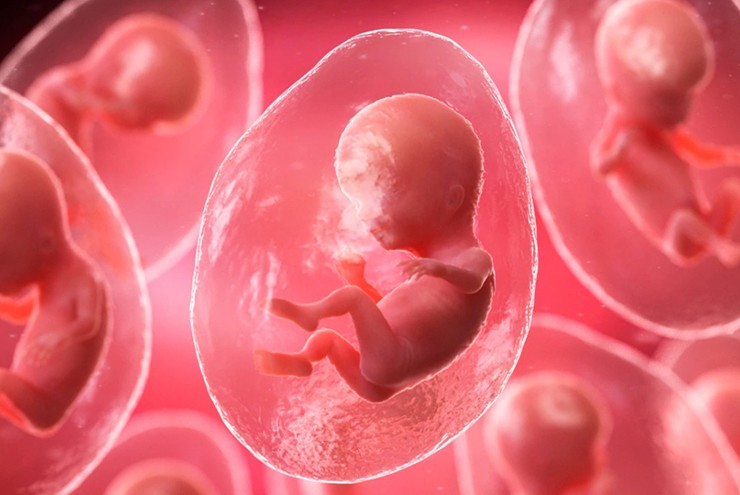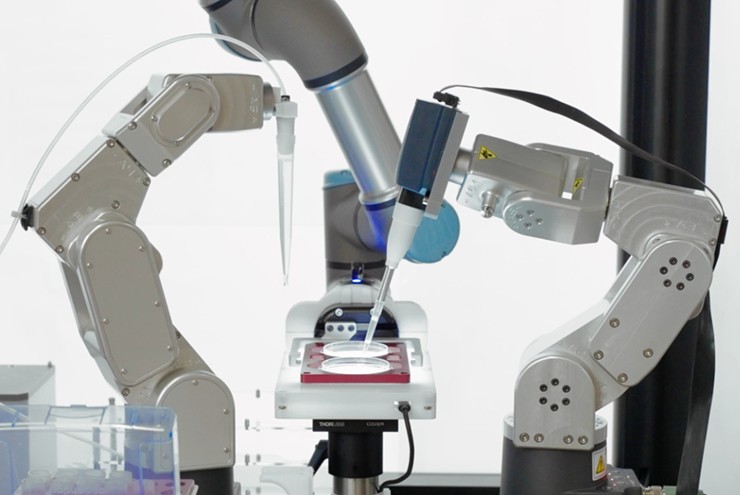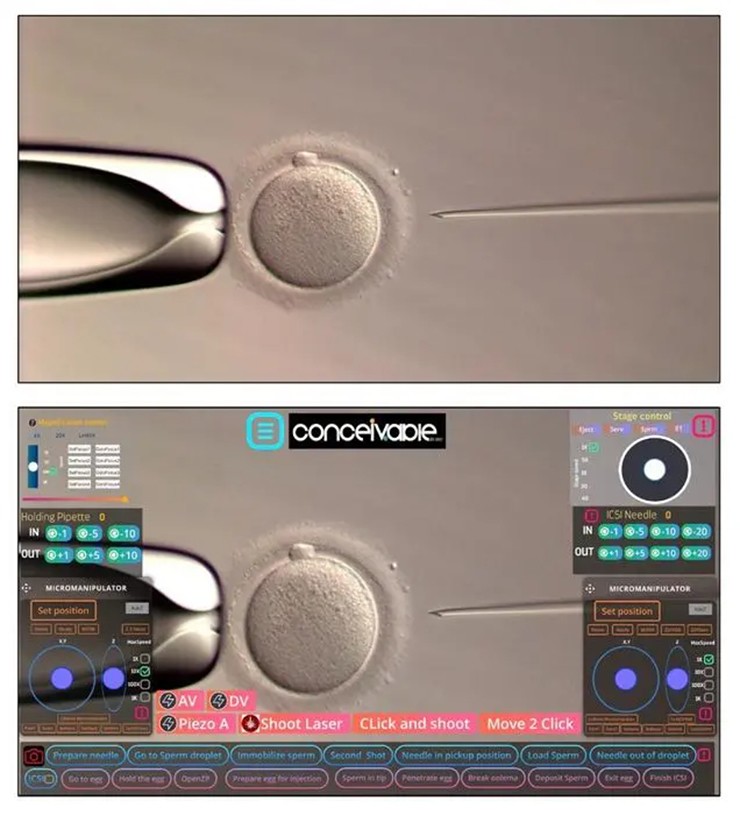The first baby born through AI-assisted conception
This is a first in human history, and biotech company Conceivable Life Sciences helped achieve it. They have developed a fully automated IVF system that handles most of the steps in the fertilization process.

The breakthrough focuses on intracytoplasmic sperm injection (ICSI), a common method in IVF in which a sperm cell is injected directly into an egg. Previously, this procedure was often performed manually by highly skilled embryologists, and results could vary depending on the skill of the operator. However, this new AI IVF system aims to automate the entire ICSI process using precision robotics and AI control.
The report shows that the system handles all 23 steps required to inject sperm into an egg. In this particular case, the AI not only selects and immobilizes the sperm with a laser, but also guides the injection process. All operations are controlled remotely from two locations: an infertility clinic in Guadalajara, Mexico, and another in New York, USA.

The patient in this case was a 40-year-old woman who was undergoing donor egg treatment after a previous failed IVF cycle. Five of her eggs were assigned to the automated ICSI system, while three were manually fertilized as a control group. Results showed that four of the five AI-injected eggs were successfully fertilized, and one developed into a high-quality embryo. When transferred in a subsequent cycle, this embryo resulted in a healthy pregnancy and the birth of a baby boy.
This is not just an isolated story, but a sign of the future of fertility care that researchers see as a sign of the future. By reducing human error and standardizing processes, AI technology in IVF could lead to more consistent results, while making assisted reproduction more accessible and effective.

Initial results offer easier parenthood for couples having difficulty conceiving.
While experts warn that more testing is needed before the technology becomes widespread, early results are promising. With $18 million in new funding, Conceivable Life Sciences is moving toward its vision of a fully automated IVF lab. The hope is that the use of AI in these systems will reduce costs, making IVF a more affordable option for expectant parents around the world.
You should read it
- ★ 20 things 'Paradox' but it is 'Truth' in today's life!
- ★ Life only encapsulates in 10 things, understanding these things your life will definitely relax
- ★ 45 the law is very true for life, so far as it is absorbed
- ★ 4 stages of life, at what stage are you 'suffering'?
- ★ 45 truths of life that anyone needs to remember